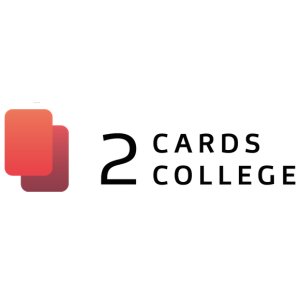How to Sell Stakes Successfully

 Backing/staking is an irreplaceable tool for building a poker player’s career. Any talented player may find himself in a situation where backing is the only way to continue playing. A severe downswing or a need to spend most of a bankroll on unforeseen needs sometimes leave a person no choice other than to quit playing or sell stakes.
Backing/staking is an irreplaceable tool for building a poker player’s career. Any talented player may find himself in a situation where backing is the only way to continue playing. A severe downswing or a need to spend most of a bankroll on unforeseen needs sometimes leave a person no choice other than to quit playing or sell stakes.
There are, of course, much less dramatic situations. A player may feel that he is ready to move up in stakes, but he is not prepared to assume all of the risks connected with this move. A player may feel like playing large fields and some expensive tournaments with relatively weak players where he is able to show a high ROI, but he cannot afford it. In this case, it would be a better idea to share some of the potential profit with backers. But how does a player, especially a beginning one, find a backer?
Tips from 2CardsCollege MTT Pro Training Program
Earn reputation and build an image
Reputation in the community is one of the crucial factors that will affect your ability to get staked. Inaccuracy in your financials and aggression in the chat or on the forum will undoubtedly injure your reputation. A competent backer would not trust his money to a player who was once inaccurate in calculations selling an offer and treat with caution a person who allows himself to insult his colleagues. Honesty and politeness are a pledge for good reputation.
Aside from reputation, there is a person’s image. Image is a part of a strategy at the tables and a trump card away from them. Having an image of a successful player, you can sell stakes for online and offline sessions in a quicker and less formal way. So, how can you build it?
Tell people about yourself
Create a blog to tell how old you are, where you live, and what your hobbies are. Post a photo and share links to your social network profiles. This way you can give potential investors a complete picture of yourself. It is always more pleasant to deal with a real person. Backers are afraid to trust money to anonymous players.
Post some interesting hands and life stories, share streams or videos of the sessions that you record, and, of course, post links to your offers. Communicate with your readers and be an active member of the community where you plan to sell stakes. Eventually, you might be invited to a pro players’ study group to work on your skills together.
If you have trained with some well-known coaches, be sure to mention it. Ask your peers, friends, and old backers to give you a brief recommendation.
Learn to sell yourself
A backer should have no doubt that your pretty graph displays your actual skill and not just a random upswing. Take screenshots of your actual and expected win rates from Hold’em Manager and PokerTracker, post- and pre-ante stages separated.
Pay a well-known coach to review your hand history and provide an expert evaluation. Aside from the general Sharkscope graph, show graphs after applying the following filters:
– All tournaments, excluding 1,000+ player fields and turbos, the cheapest and most expensive ones, where you do not have a sufficient sample
– All tournaments for the last 12 months
– Your regular stakes tournament sample
It will remove many questions of your backers, especially if your graph resembles a cardiogram or you are selling stakes for expensive tournaments while having a low regular ABI.
 Avoid competition
Avoid competition
If you are not a well-known player, sell your first offers with a small mark-up. All things being equal, a backer would prefer to buy from a well-known player and not you. You can avoid competition by offering stakes at a smaller mark-up or profit share.
Design your tournament schedule carefully
The more balanced your tournament grid is, the more backers will be interested in investing in you. There is nothing worse than an offer where $5+R rebuys and $11 freezouts are combined with $109 turbos and $215 1,000+ fields. Many backers never invest in offers that include turbos. If you want to play different types of tournaments, publish two offers with different terms. Another advantage of this approach is that you may adjust the terms and your investment in buy-in more liberally.
Be punctual
This is by far the most important rule. Publish your results right after you finish playing. Transfer the funds on time. If you decide to postpone an offer, make sure to warn your backers and explain the reasons. Ask for their express approval of this action or cancel the offer and return their funds promptly if anyone of them disagrees.
If you won a major tournament on PartyPoker, where there is a fee for cashing out via Skrill, ask your backers if they agree to pay the fee or can wait until you find an exchange. Better yet, outline the rules for this type of a situation in the original offer. This way, you will prevent any potential misunderstandings or disagreements at the outset.
In general, warn your backers of any possible adverse events (withdrawal/exchange fees, tax consequences, etc.) beforehand.
Want to learn more about backing and get more practical advice from the 2CardsCollege’s senior coach Alex Assassinato Fitzgerald? Register for Alex’s free webinar, which will be held on July 30 at 19:00 CEST.




